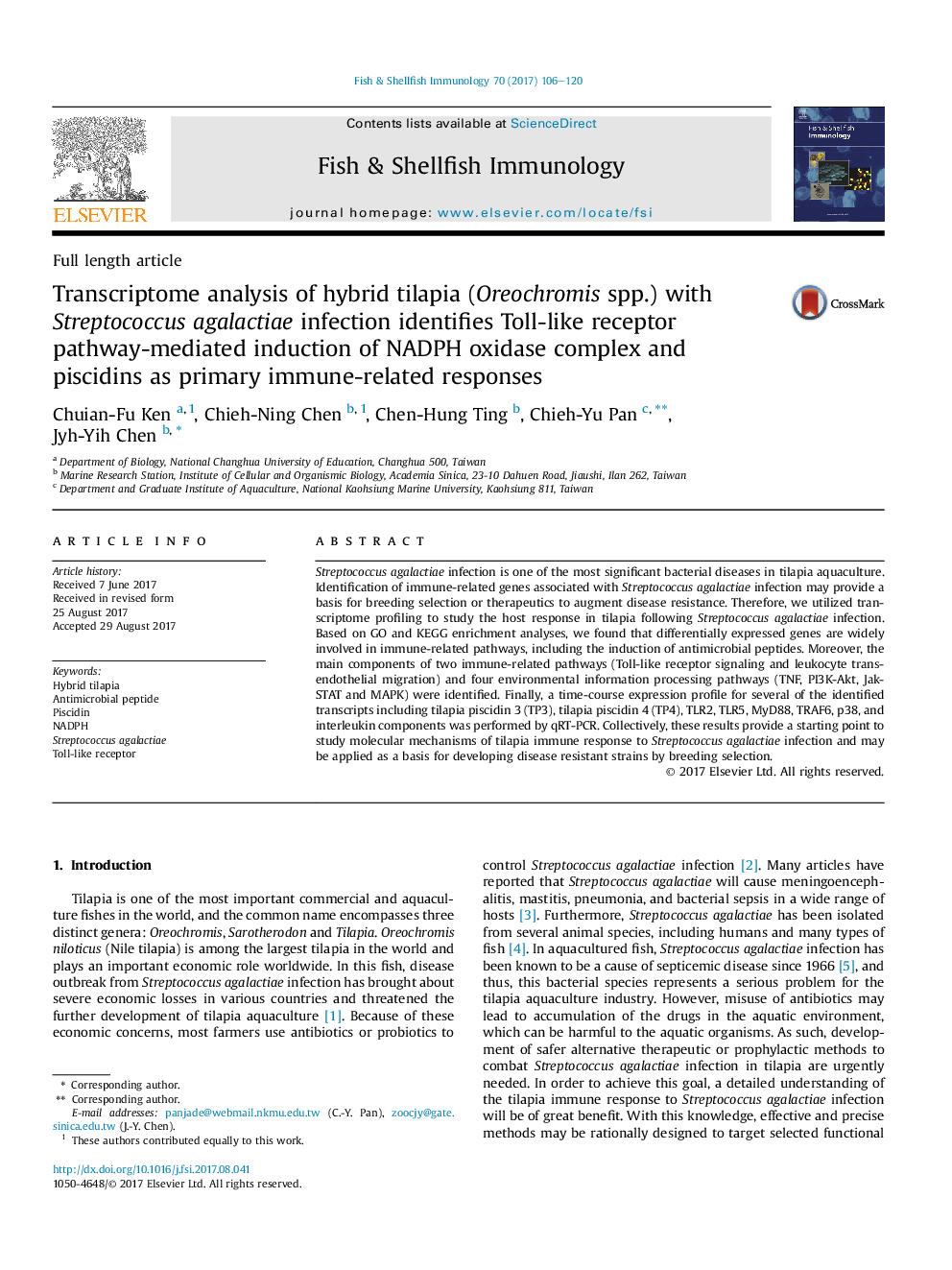| Article ID | Journal | Published Year | Pages | File Type |
|---|---|---|---|---|
| 5540268 | Fish & Shellfish Immunology | 2017 | 15 Pages |
Abstract
Streptococcus agalactiae infection is one of the most significant bacterial diseases in tilapia aquaculture. Identification of immune-related genes associated with Streptococcus agalactiae infection may provide a basis for breeding selection or therapeutics to augment disease resistance. Therefore, we utilized transcriptome profiling to study the host response in tilapia following Streptococcus agalactiae infection. Based on GO and KEGG enrichment analyses, we found that differentially expressed genes are widely involved in immune-related pathways, including the induction of antimicrobial peptides. Moreover, the main components of two immune-related pathways (Toll-like receptor signaling and leukocyte transendothelial migration) and four environmental information processing pathways (TNF, PI3K-Akt, Jak-STAT and MAPK) were identified. Finally, a time-course expression profile for several of the identified transcripts including tilapia piscidin 3 (TP3), tilapia piscidin 4 (TP4), TLR2, TLR5, MyD88, TRAF6, p38, and interleukin components was performed by qRT-PCR. Collectively, these results provide a starting point to study molecular mechanisms of tilapia immune response to Streptococcus agalactiae infection and may be applied as a basis for developing disease resistant strains by breeding selection.
Related Topics
Life Sciences
Agricultural and Biological Sciences
Aquatic Science
Authors
Chuian-Fu Ken, Chieh-Ning Chen, Chen-Hung Ting, Chieh-Yu Pan, Jyh-Yih Chen,
